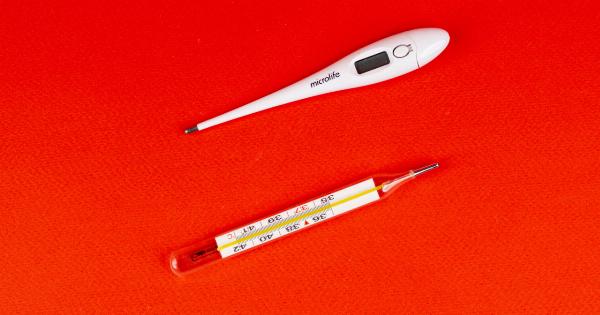Mercury is a toxic heavy metal which is widely found in the environment. It is a natural element that is released into the atmosphere from volcanoes, forest fires, and human activities such as burning fossil fuels and mining.
Mercury is used in a variety of products including thermometers, dental fillings, and fluorescent light bulbs.
Health Effects of Mercury Exposure
Mercury exposure can have serious health effects on the human body. The toxicity of mercury depends on its chemical form, the route of exposure, and the dosage. Mercury vapor is the most toxic form of mercury and is readily absorbed through the lungs.
Exposure to high levels of mercury vapor can lead to respiratory problems, lung damage, and even death.
Mercury can also be ingested by eating contaminated fish or other seafood. Mercury accumulates in the flesh of these animals and can be toxic to humans who consume them.
Symptoms of mercury poisoning include tremors, memory problems, anxiety, and depression. Long-term exposure to mercury can damage the nervous system, kidneys, and immune system.
Autoimmune Diseases
Autoimmune diseases are a group of disorders in which the immune system attacks healthy cells in the body. These diseases are often chronic and can affect various organs and tissues.
The cause of autoimmune diseases is not well understood, but it is thought that a combination of genetic and environmental factors may contribute to their development.
Some common autoimmune diseases include rheumatoid arthritis, lupus, multiple sclerosis, and psoriasis. Symptoms of autoimmune diseases can vary depending on the specific condition, but often include fatigue, joint pain, rashes, and fever.
There is no cure for autoimmune diseases, but treatment can help manage symptoms and slow the progression of the disease.
Mercury Exposure and Autoimmune Diseases
Recent research has shown a link between mercury exposure and the development of autoimmune diseases.
It is thought that mercury exposure can cause the immune system to become overactive, leading to the development of autoantibodies which attack healthy cells in the body. Autoantibodies are proteins that target and destroy healthy cells by mistake. The presence of autoantibodies is a hallmark of autoimmune diseases.
A study conducted by the Environmental Protection Agency (EPA) found that exposure to mercury can cause changes in the immune system that lead to the development of autoimmune diseases.
The study found that mice exposed to low levels of mercury developed autoantibodies and were more susceptible to developing autoimmune diseases such as lupus.
Another study published in the journal Autoimmunity found that exposure to mercury can trigger the development of autoimmune diseases in humans.
The study found that people with high levels of mercury in their blood were more likely to develop autoimmune diseases such as rheumatoid arthritis and lupus.
Preventing Mercury Exposure
Preventing mercury exposure is important for protecting your health. Here are some tips for reducing your exposure to mercury:.
- Avoid eating large fish that are high in mercury, such as shark, swordfish, and king mackerel
- Choose fish and seafood that are low in mercury, such as salmon, shrimp, and catfish
- Avoid using products that contain mercury, such as thermometers and fluorescent light bulbs
- If you have mercury dental fillings, talk to your dentist about getting them removed and replaced with a safer material
- Avoid using skin-lightening creams that contain mercury
- Wash your hands frequently to remove any mercury that may be on your skin
Conclusion
Mercury exposure can have serious health effects on the human body, including increasing susceptibility to autoimmune diseases.
While there are no cures for autoimmune diseases, preventing exposure to mercury can help reduce the risk of developing these conditions. By following the tips outlined above, you can protect yourself and your family from the harmful effects of mercury exposure.































